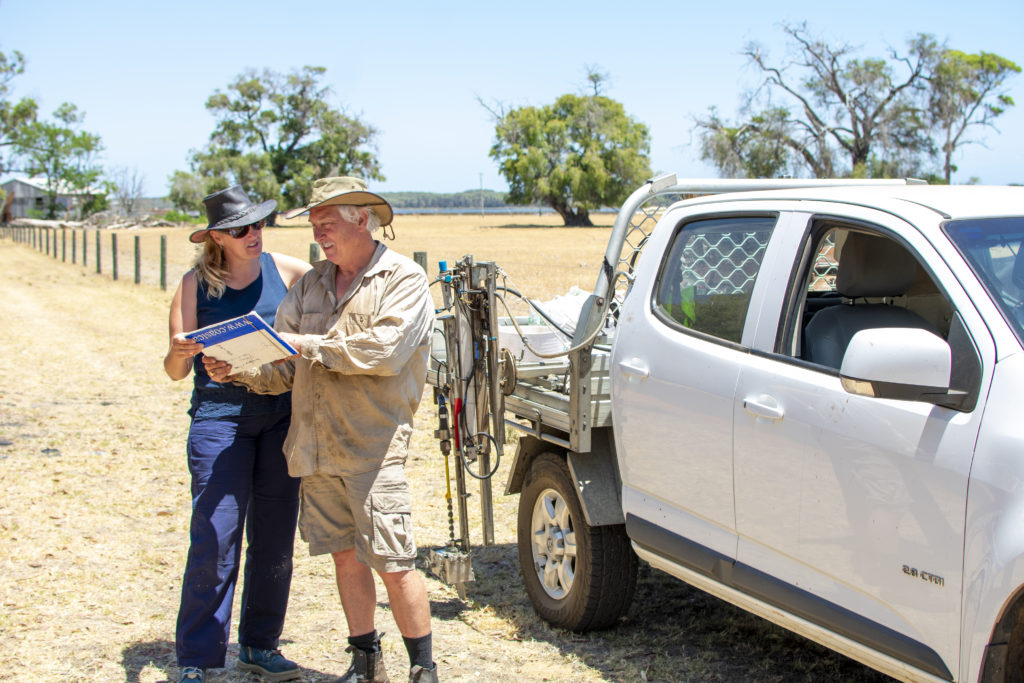More than 190 farmers applied to have their soil tested in the latest round of the Healthy Estuaries WA’s fertiliser management program.
The 2020/21 program, which closed on Friday 9 July, was the first time farmers were offered two methods of soil sampling: do-it-yourself or sampled for you.
Prior to 2020, farms were sampled exclusively by a team of trained soil samplers. This minimised time requirements from farmers but meant that farmers weren’t contributing their expertise to the process.
Dr Deborah Holtham, Sustainable Agriculture Project Coordinator with the Department of Water and Environmental Regulation (DWER), said the two options allowed the program to be tailored to meet the needs of the farmer.
“Do-it-yourself sampling is an opportunity for farmers to get hands-on with the science that’s happening in their soils,” Dr Holtham said.
“Farmers understand their paddocks better than anyone. They know where stock like to gather and can plan sampling to avoid areas that can make results less accurate.
“Landowners that don’t live on their property, or properties with a large number of paddocks, are likely better suited to having samples collected for them, where as farmers that have between five and 15 paddocks and live on their property would likely benefit from sampling their property themselves.
“As a part of the program, we train farmers how to use the equipment and take samples in line with national guidelines. This makes it easier for farmers to continue sampling their own paddocks into the future.”
By testing soils, farmers can tailor their fertiliser program to apply only what they need. This prevents excess fertiliser washing into waterways where it fuels excess algal growth.
“It’s not just about improving the health of our waterways – it’s also about working together to improve farmers’ profitability and knowledge of their farming system.”
The 2021/22 fertiliser management program is a partnership between DWER, catchment groups and the Department of Primary Industries and Regional Development.

